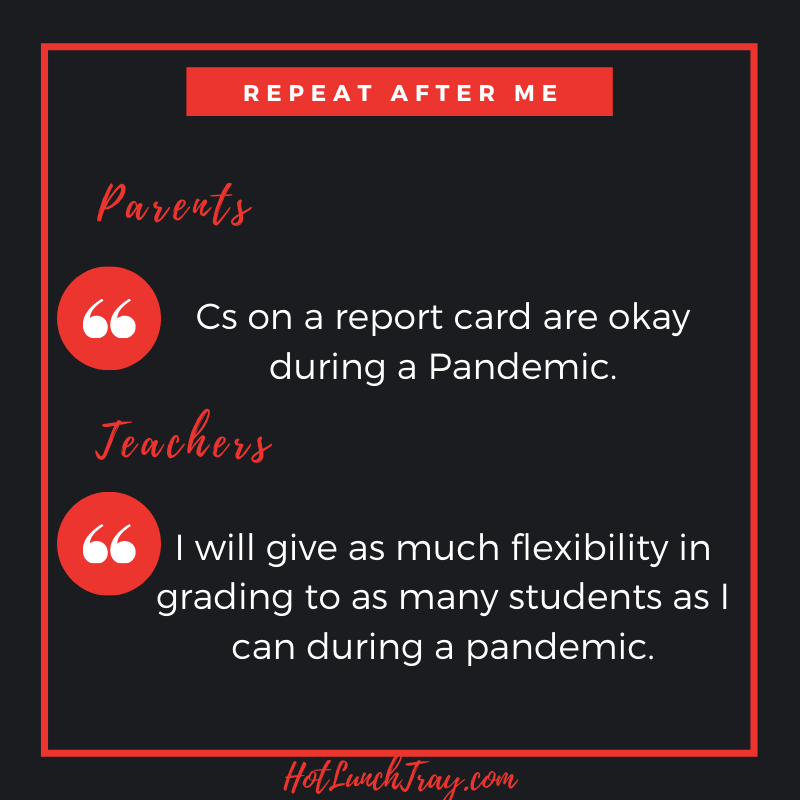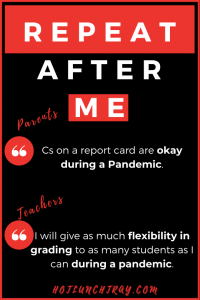Before a parent or an educator becomes too emotional in response to pandemic grading, let us consider the situation…
Craft an Intentional Perspective
“Unconditional positive regard” means an approach that slows us down and considers student /teacher motivation and overall student skill and capacity when designing learning experiences (Venet, 2019) which could be situational. And a pandemic certainly qualifies for a situation. Unconditional positive regard is attributing the best possible intentions to another’s actions. And in a time that could be an ongoing trauma to either a student or an educator, the best thing we can all intentionally craft is unconditional positive regard for each other.
Grading
Without knowing all the variables of a student’s situation in the current pandemic, teachers are obligated to be as flexible as possible with deadlines and grading practices. The student who typically has less control of grading practices in school than teachers could now also be subject to unanticipated variations of home life. Learning and well-being should be prioritized over grading as possible.
Teachers working during a pandemic, with little control over anything else, may seek to offer “comfort” in standardized procedures. Some teachers may predict that strict guidelines convey normalcy. These acts which seem heavy-handed are the teacher’s efforts to mitigate the chaos of the pandemic. Likely this is not helpful to students or their parents, but recognize the effort and intention of the teacher. Reach out to the teacher and specifically tell them what you need and why.
Communication
When communicating with people (parent-to-teacher or teacher-to-parent), state your intention clearly before making a request.
State your intention:
- Are you trying to help your student catch up?
- Are you asking for the teacher’s help?
- Are you holding the student accountable?
Notice what else is going on:
- Do you see how hard the teacher is working?
- Do you see the student being overwhelmed/lost/apathetic?
Offer to Help:
- Can you reinforce what is happening in the classroom?
- Can you provide remediation?
- Can you help the student study for an upcoming test?
Teachers, during a pandemic, do not contact the parent or student to tell them their student is failing, falling behind, or not positively participating without:
- Asking how you can help
- Offering to extend due dates or exclude/truncate some assignments
- Asking what they need (and be prepared to connect them with non-classroom resources)
Instead of emotionally reacting to pandemic grading, seek to understand the intentions of either ht teacher, parent, or student. Attribute the best possible intentions to the other until you understand how you can best help them. Parents, Cs are okay grades during a pandemic. And teachers, this is the time to be grade purists, this is the time to help our families.
References
Venet, A. S. (2019). Role-Clarity and Boundaries for Trauma-Informed Teachers. Educational Considerations, 44(2), 1–9. https://doi.org/10.4148/0146-9282.2175







2021-01-06 at 12:31 pm
Great tips, this pandemic is definitely a unique situation for everyone.
2021-01-06 at 9:46 pm
Oh definitely, I think communication is so key–especially right now! I know that this is something I really need to work on. I’ve been disappointed by the lack of communication with some of my kid’s teachers; but it’s kind of hypocritical to complain when I’m not doing my part either.